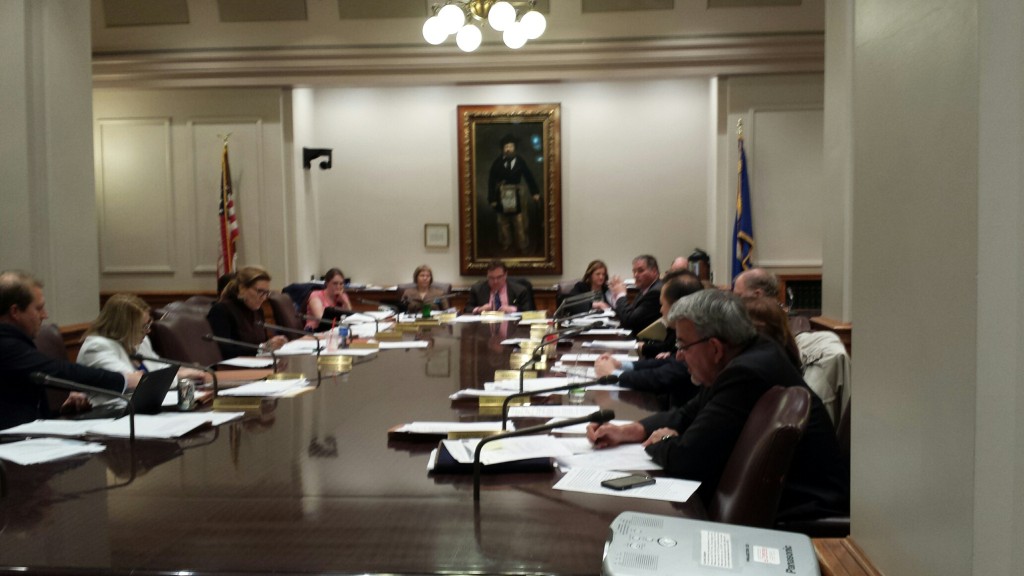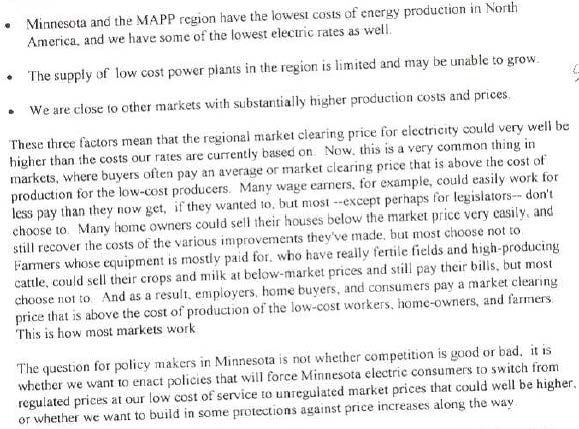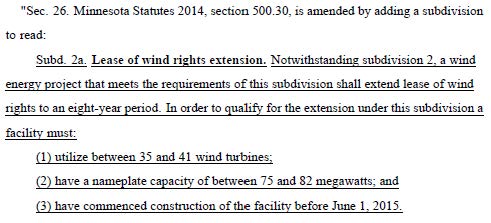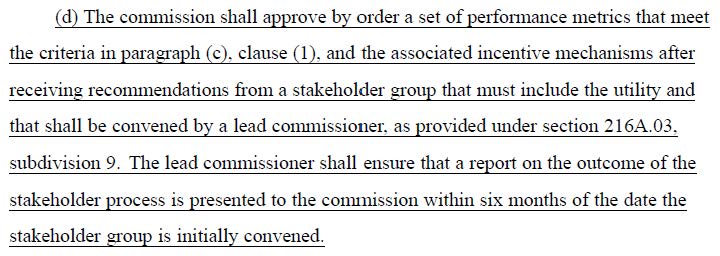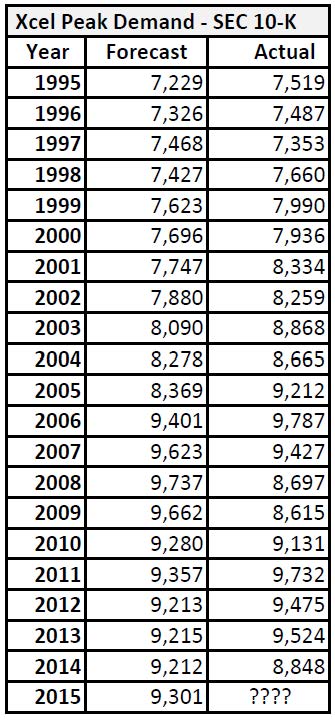Rep. Osienski, Sen. McBride step up on Bakken BOOM! trains
April 8th, 2015
From Green Delaware, there’s action in Delaware in support of U.S. Senate Bill 859, the Rail Safety Act of 2015, urging something similar in the House:
Here’s the letter.
Since the reopening of the Delaware City Refinery, engineered by Gov. Black Jack Markell behind the backs of the people of Delaware, Delaware has become a leading destination for “bomb trains.” Oil comes into Delaware by train not only for refining in Delaware but for transshipment to other refineries along the Delaware River. This mocks the Delaware Coastal Zone Act’s prohibition of “new bulk transfer facilities.” Did Black Jack know that very dangerous bomb trains were part of the deal? We don’t know, but it seems unlikely he would have cared one way or the other. Delaware is also one of a few states that has shamed itself by refusing to release information on the routes and frequency of the bomb trains.
See this previous post: Bakken BOOM! Rail Safety Bill
Action:
Check the letter to see if YOUR Senator and Representative have signed on. If not, ASK THEM TO. Contact information from the League of Women Voters is here.
And thank Rep. Osienski and Sen. McBride.
Gov. Terry Braindead shows how it’s done…
April 3rd, 2015
There’s Iowa Gov. Terry Branstad showing how it’s done! He’s just axed Sheila Tipton from the Iowa Utilities Board, shortly after it made a decision that MidAmerican Energy did not like. Three days after that Feb. 6 decision, the company had a meeting with the Gov, and they openly admit that! Really? That’s OK?
As of March 2, Sheila Tipton is out… He also demoted the Chair Libby Jacobs! Guess when MidAmerican complains, Branstad hops to it!
Dissing the Iowa Utilities Board
Some people believe that; some don’t.
Gov. Branstad Accused of Allowing Energy Company Dictate Who Serves On Iowa Utilities Board
This was a $2 million annual return to ratepayers/rate reduction. Less than 1% of the capital cost of the project, on which they will be making how much? By owning it themselves they’re eliminating paying the middleman as they would with a PPA, and they’re getting the tax credits, and they’re also probably selling the energy for export. They are also the utility that just built a BIG coal plant on the western edge of the state at the “MidAmerican Energy Center” and are also the utility that is building part of the MISO MVP transmission highway across the top of Iowa, coincidentally starting connected to the 345 kV line attached to their big coal plant… applications have been filed for this project. Tipton had recused herself from this transmission project docket as she’d represented MidAmerican! Something tells me Braindead didn’t want to take chances on that transmission with any scrutiny of the project!
Here are the MISO MVP 345kV connections to the existing system to build the Energy Export Interstate System!
But with the new appointee…
Branstad appointee faces potential conflict in pipeline case
Must mean Braindead doesn’t mind if she recuses herself from that case, after all, she might be biased toward landowners! Better if she not be a decider on that, eh?
Bill to extend Getty/Black Oak wind contracts?
March 24th, 2015
This was last Thursday evening at the Senate Environment and Energy Committee. Alan Muller and I were there for SF 1735 (the Xcel Energy e21 Initiative start)(see Great Plains Institute site) and the SF 1431 Energy Ominous Bill. Before the start on SF 1735, there was announcement of a “delete all” which means everything out and into the dumpster, and new language… and then after that, the SF 1431 Energy Ominous Bill into which the neutered SF 1735 went, and then on with the amendments to the SF 1431 Energy Ominous Bill! WHEW! What a… a… well…
There’s a lot to find offensive.
Here are the Committee meeting MINUTES.
Here’s the audio of the Committee meeting:
Here’s the two energy bills at issue:
| S.F. 1735 | Marty | Public utilities performance-based multiyear rate plans authorization (for possible inclusion in omnibus energy bill). | |||||||
| S.F. 1431 | Marty | Omnibus Energy Bill. | |||||||
First, regarding SF 1735, WOW, what a mess. There was a delete all and what was left was pretty much nothing, and it was, immediately afterward, incorporated into the SF 1431 Energy Ominous Bill. But let’s start with SF 1735.
Here’s the A-2 delete-all Amendment S.F. 1735
Here’s the handout I’d made, but after the delete-all, we couldn’t talk about SF 1735 as introduced!
Overland_Testimony_3-19-2015 – Not handed out because we were limited to A-2
The good news is that the Office of the Attorney General had a lot to do with the gutting of the e21 Initiative S.F. 1735. And better, the AG’s Office had a rep there, James Canaday, who testified against S.F. 1735. Sen. Katie Sieben was chairing as Marty was in the hot seat introducing his bill, and she would not allow testimony about S.F. 1735 as introduced, “we’re here to talk about the A-2 Amendment.” Despite that, Canaday was able to raise four primary points of objection:
- S.F. 1735 would do away with contested case, and lines 3.9 – 3.15 would institute a “stakeholder” process (at which point, Sieben interrupted and told him not to testify about S.F. 1735).
- A.G.’s Office does not recommend we experiment with such radical changes, such as changing a 3 year to a 5 year multi-year rate case. The first multi-year rate case is being decided tomorrow, and it was a lot of work. PUC in this first multi-year case noted that if a utility cannot prove up its claim formulas, we will limit the categories that utilities can claim formulaic increases.
- This is a step toward the end of cost-based regulation and to allow projected increases based on formulas, not costs. The PUC has said it has “great doubt about formula-based rates.”
- This bill does not clarify how interim rate determination will work.
e21 Initiative and S.F. 1735 as introduced is off the agenda, at least for now. There’s a “study” in the A-2 Amendment, now added to the Energy Ominous Bill:
Something I remain concerned about is the provision for recovery of stranded costs:
 What we learned in the deregulation discussion 15-20 years ago is that what Xcel f/k/a NSP was prepping us for was for payment by ratepayers of their “stranded costs,” meaning their investment into whatever facility that was then “divested” in deregulation. Everyone was on board, nearly everyone, the “enviros” were bobbleheads in the rear window, agreeing to everything, and then…
What we learned in the deregulation discussion 15-20 years ago is that what Xcel f/k/a NSP was prepping us for was for payment by ratepayers of their “stranded costs,” meaning their investment into whatever facility that was then “divested” in deregulation. Everyone was on board, nearly everyone, the “enviros” were bobbleheads in the rear window, agreeing to everything, and then…
We are now paying for the shift from “Minnesota” need to “regional” need, and we are paying for our acquiescence to the transmission build-out that facilitates the marketing of power to areas where it sells at a higher price than here in Minnesota:
Corneli was correct in noting that the utilities didn’t have “stranded costs,” the utilities had “stranded assets,” and if deregulation were to happen, THEY’D OWE US MONEY, not the other way around! SNORT!
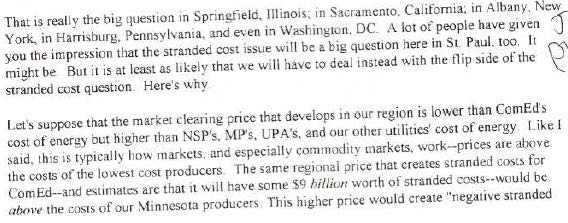
 That’s basic economics! So when you hear talk of “stranded costs” or “stranded assets” (make sure you and “they” understand and identify which is which!), or worse, “rate smoothing” as touted by e21 Initiative, “theoretical depreciation reserve” which is voo doo accounting lowering the utility’s revenue requirement, resulting in lower rates, ask, “What exactly is going on here” and “what does this mean for Minnesota ratepayers, ALL CLASSES, EACH CLASS, of Minnesota ratepayers?
That’s basic economics! So when you hear talk of “stranded costs” or “stranded assets” (make sure you and “they” understand and identify which is which!), or worse, “rate smoothing” as touted by e21 Initiative, “theoretical depreciation reserve” which is voo doo accounting lowering the utility’s revenue requirement, resulting in lower rates, ask, “What exactly is going on here” and “what does this mean for Minnesota ratepayers, ALL CLASSES, EACH CLASS, of Minnesota ratepayers?
The good news from last Thursday is that the e21 bill, the beginning of toadying for the e21 Initiative agenda which is HUGE, is history.
Next, the A-2 Amendment to S.F. 1735 was then added to S.F. 1431:
| S.F. 1431 | Marty | Omnibus Energy Bill. |
Here’s the result of all the wheeler-dealering:
Yes, it is indeed gross, and the process to get to this engrossment was painful to watch.
First out the gate was the A-12 amendment, by Sen. Weber, who is from far Southwest Minnesota, amending Minn. Stat. 500.30 to extend the limit on wind rights leases from 7 to 8 years, specifically for the Black Oak/Getty wind project because it won’t be completed by the time the 7 year period is up. Sen. Weber’s email: sen.bill.weber@senate.mn
WHAT? That’s special legislation, DOH! I asked whether he’d provided notice to the affected landowners and he gave a wandering avoidant response that showed that the affected landowners had not been consulted. How disrespectful can he get? And why is he carrying this amendment, and not the local Senator for the affected area? Were the Senator and Rep informed about this? Or are they in cahoots with the project developer? What’s the story here?
Then there were a couple of rational amendments, passing and not passing, and then back to bizarre… and for this round of BIZARRE it was Sen. Osmek’s turn, first an A-6 amendment to repeal the nuclear moratorium, which went down, not added to Energy Omnibus bill. Then the most bizarre one, the A-7 Amendment (see also SF 231, HF 333) that any EPA regulations would need to go through the legislature:
 There were audible gasps around the room… and Sen. Marty delivered a very even explanation of federal and state jurisdiction, and Sen. Osmek either didn’t know, didn’t understand, or didn’t care, and pushed for a vote, and of course that went down in flames as well. Why would he do something like that which has such a clear detrimental impact on his credibility? Here’s Sen. Osmek’s email: sen.david.osmek@senate.mn
There were audible gasps around the room… and Sen. Marty delivered a very even explanation of federal and state jurisdiction, and Sen. Osmek either didn’t know, didn’t understand, or didn’t care, and pushed for a vote, and of course that went down in flames as well. Why would he do something like that which has such a clear detrimental impact on his credibility? Here’s Sen. Osmek’s email: sen.david.osmek@senate.mn
Here’s who’s on the Senate Environment and Energy Committee. Call them, email them, call and email them, and let them know what you think, very specifically and in technicolor.
Contact YOUR State Senator and all the State Senators to let them know what you think:
the problems with SF 1735…
March 18th, 2015
Please say no to S.F. 1735, a bill that would result in removal of the regulatory protections for rate-payers and the public, and let utilities have the ability to charge us for private costs, and costs that have not been demonstrated to be prudent expenditures.
Little by little, Xcel Energy’s e21 Initiative is slithering into bills before the House and Senate Energy Committees.
Before anyone can vote on these bills, they should read Alfred Kahn’s “The Economics of Regulation,” both Volume 1 and Volume 2.
What’s e21 Initiative? Here’s what Xcel filed at PUC, docket 14-1055:
Tomorrow, S.F. 1735 (see companion HF 1315)and S.F. 1431 are in Committee, and they’re supposed to vote on the Energy Ominous bill.
What’s up with S.F. 1735? Well, check out this version, with yellow highlighting (and this is NOT all-inclusive):
SF 1735doesn’t have the part about “Competitive Rate for Energy-Intensive Trade-Exposed Electric Utility Customer” part that HF 1315 does, though we’ll see what the mines and Koch Refinery have to say about that when the Energy Ominous bill comes together and everyone has their hand out and foot in the door.
SF 1735 is a problem because… where to start… the first problem is that it proposes, as Xcel does in e21, a BUSINESS PLAN which “replaces a general rate case filing,” REPLACES! The standard it must meet is that it result in “just and reasonable rates,” and there’s nothing about “prudent” and there’s nothing about being in the public interest. DOH!
And dig how it would be approved — they SHALL approve:
Stakeholder group… right, we know who that is, and we sure know who that isn’t! And that’s the e21 Initiative mantra, stakeholders, and from who was included in e21, we know who would be deemed a stakeholder — all those who have done deals with Xcel Energy! Oh, and DOH, they want approvals at the PUC based on “Settlement Agreements.” Right, like the one that opened the door and welcomed CapX 2020 transmission, and that horriffic “it’s a deal, it’s a package deal, and it’s a good deal” of the 2005 Ch 97 – Transmission Omnibus Bill from Hell with Xcel transmission perks, CWIP and C-BED :
PUC decision based on “stakeholders” and deals with Xcel Energy? No, I think not.
Per the House hearing on HF 341 (see also S.F. 237), Minnesota should now be an electricity exporter, which is one between-the-lines goal of e21 Initiative, the others being ability to build without demonstrating need, to use ratepayer money for market development, to eliminate contested cases and use “Settlement Agreements,” which they’ve done expertly in the past. Exporting for profit is doable, now that we have the transmission in place. It would help Xcel Energy to just get rid of that Certificate of Need requirement, which HF 341 would do for natural gas plants of any size, i.e., 800 MW (like the LS Power Sunrise Station proposed for Chisago County, Lent Township) if it’s for sale into the MISO market. As you know, also up for consideration is SF 306 & 536, HF 338, which would lift the nuclear prohibition and allow a CoN for Monticello or anywhere. There’s no need, instead there’s excess generation, but that electricity could also go into the market, and with Construction Work in Progress, Minn. Stat. 216B.16, Subd. 6a, we ratepayers could pay for that private market activity. NO. NO. NO.
NO!
The situation we’re in is NOT new to Xcel or any other utility.
- Distribution system is utility responsibility as franchise holder and regulated utility, but they’ve neglected the distribution system over decades. They have chosen not to upgrade and not to bring it into the 21st Century. That neglect is not ours to correct. Xcel has twice tried to invade and inflict communities with transmission when they had identified a distribution system deficit — Hiawatha and Hollydale. NO!
- Transmission deficit a decade ago was caused by putting so many IPP gas plants on line without requiring transmission upgrades. This is reflected in the TLTG tables for the SW MN 345 kV line, PUC Docket 01-1958. It also became an issue when Big Stone II was proposed because at that time it was “cause cost pays” and they hadn’t been charging gas plants but were going to charge BSII for interconnection costs, and BSII objected (see “standstill agreement” and withdrawal of Bill Gates’ Cascade Investment from that project at Legalectric: Bill Gates & Otter Tail at the PUC Tuesday…). That transmission CoN was denied, approved, and plant was withdrawn so non-issue. Then utilities and paid-for-NGOs went to MISO and FERC to find a way to spread the payment of transmission construction costs around, which they did. The ones building it are not necessarily the ones paying for it, and it’s us ratepayers paying for transmission construction all around the country (See Schedule 26A, MISO Tariff, also Tariff MM) and the PUC has yet to address whether that should be paid for by us — but wait, it’s FERC rates, so the PUC has no say… well, that MISO MVP bill hasn’t come before the PUC yet, and that’s the last thing Xcel wants. That capital cost is for private purpose transmission (market transactions) and as such, it is not ours to pay.
- Generation changed decades ago too, moving away from utility construction and ownership, collect revenue for that, and now it’s morphed to an IPP (Independent Power Producer) mode where a third party takes on risk and cost of construction and sells power to utilities. It’s been that way for decades. Xcel has done some coal plant update, and nuclear update/uprate (grossly over budget by factor of 2+), but no new plants. This shift from that regulated revenue stream was a business choice of utilities, but now they’re looking to make up that revenue that they don’t get for building the plants. That business choice is not ours to “fix.”
- Rates — Utilities want out of rate cases! Of course they’d want that, Xcel has lost ground in their rate demands the last few rounds. A Business Plan is not adequate, however, they need to prove up their expenditures if they expect us to pay them, and we should not, must not, be assessed for their market private purpose expenses, like transmission for export. The bills for CapX 2020 ($2 billion) and for MISO MVP projects ($5.2 billion across Midwest) are the types of large expenses that they do not want to have to justify. Not wanting to go through a rate case is no reason for us to let go of that protective review, or to let them charge us for things that are not public purpose expenditures necessitated by their obligation to provide universal service under their franchise.
- Deregulation — this “e21 Initiative” looks and feels like the 2000 deregulation push to me, particularly with all the support from “environmental” and “advocacy” organizations, well funded, and funded I believe by Xcel and cronies (and that information should be made public). Utilities wanted deregulation (back when Enron and Xcel’s NRG was making 300% profits screwing over California in an orchestrated rate skyrocket) and at that time, Xcel had all the “environmental” organizations behind it as “inevitable restructuring.” Everyone was jumping on the deregulation bandwagon, all bozos on that bus, and that’s how this e21 feels. Lots of people agreeing without knowing what they’re talking about, without understanding the consequences. Back in that earlier deregulation push, the utilities also had everyone on board to pay them “stranded costs” for their large generating plants. Thankfully the A.G. stood up to that pointing out that deregulation is a disaster where ever it goes, and that the claimed “stranded costs” were really stranded assets, and if anyone owed anyone money, the utilities owed us for their assets that were paid for and fully depreciated. Read Corneli on Stranded Assets.
This is not new to utilities. It is not our job to correct their business plan errors, to pay for their neglect, or to finance their market activities.
More on this soon… but the short version, NO to SF 1735. NO to SF 1431.
NO! NO! NO!
It’s not in the public interest.
And by the way, the “WE NEED MORE” histrionic mantra that you year year after year is false. Excess generation? Yes — here’s the peak demand that Xcel Energy has reported on its SEC 10-K filings since 1995:
Also from the 2014 SEC 10-K link:
 |
The question to ask is “What’s stopping utilities?” And it’s not our regulatory system. It’s that utilities are looking for additional ways to transfer their costs to ratepayers without regulatory review.
Gov. Dayton made my day! Rail, pony up!
March 13th, 2015
I was not happy with the MnDOT Rail Plan, and let them know, particularly that it is not OUR job, “we the people,” to pay for upgrades and safety measures required due to the super volatile Bakken BOOM! oil, and today the Gov. stood up to the railroads.
Here are my Comments:
Here’s that Draft Rail Plan, comments were due Tuesday:
From today’s STrib, Gov. Mark Dayton is leaning on the railroads:


